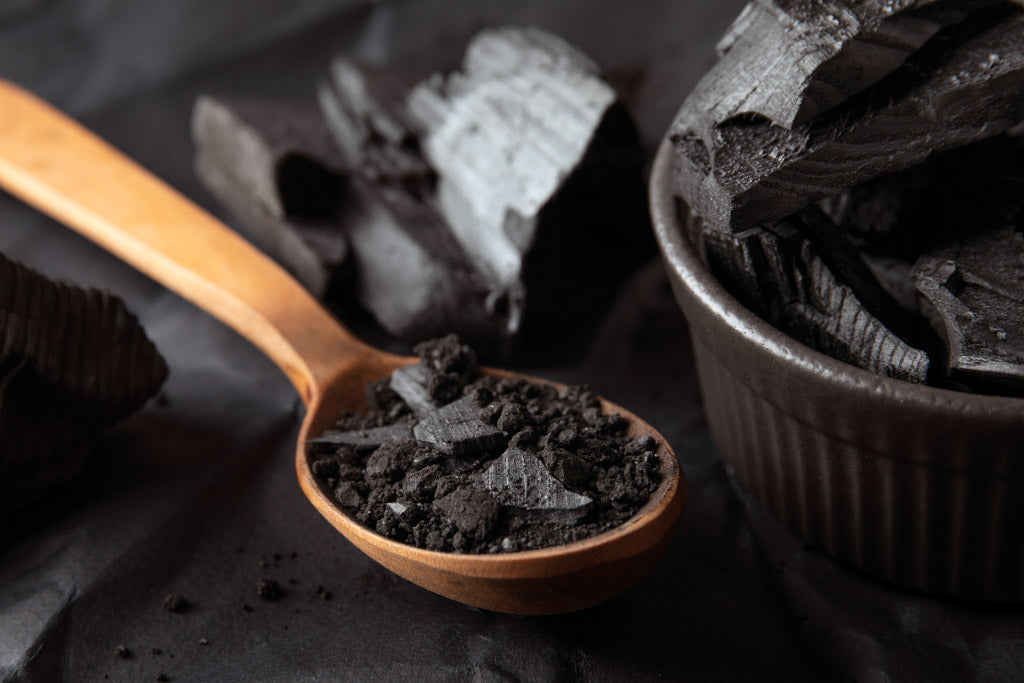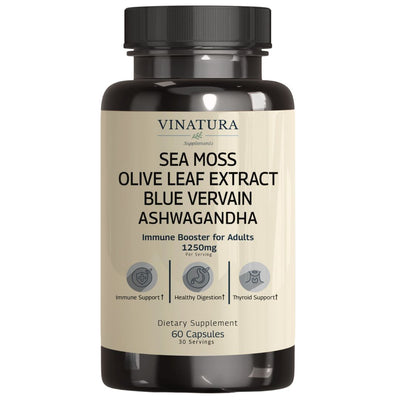
Shilajit vs Ginseng: Detailed Comparison Of The Benefits
If you are looking for alternatives to traditional Chinese medicine or a natural remedy to improve your overall health and wellbeing, then Shilajit vs Ginseng is the ultimate comparison. Both herbal remedies have been used in Eastern cultures for centuries for their healing properties. But which one is going to give you the best result? This blog post aims to provide an informative and detailed breakdown of both Shilajit and Ginseng as well as all the key benefits associated with each of them so that you can decide which one is right for you.
Before exploring further, please read the disclaimer located at the end of this webpage.
What do Shilajit and Ginseng Have In Common?
Shilajit and Ginseng are two popular herbal supplements that have been used for centuries in traditional medicine. Both of these natural substances are known for their potential health benefits and have gained popularity in recent years as alternative remedies [1].
Shilajit, also known as "rock sweat" or "stone oil", is a tar-like substance found in the Himalayas and other mountainous regions. It is formed from decomposed plant material and minerals that have been compressed over centuries.
Used in Ayurvedic medicine for over 3,000 years, Shilajit is believed to promote overall health and vitality [2].
Ginseng, on the other hand, is a root that is native to Asia and North America. It has been used in traditional Chinese medicine for over 2,000 years and was highly valued for its ability to boost energy and improve overall health. Today, Ginseng is widely cultivated and used all over the world [3].

Key Benefits of Shilajit
Reduces the risk of Alzheimer's disease
One of the key benefits of Shilajit vs Ginseng is its potential to reduce the risk of Alzheimer's disease. Several studies have shown that Shilajit contains compounds that may help prevent the buildup of amyloid plaques in the brain, which are linked to Alzheimer's disease. These compounds also have antioxidant and anti-inflammatory properties that can protect brain cells from damage [4].
Improves Athletic Performance
Shilajit and Ginseng both have been used as a natural remedy for boosting energy and improving athletic performance. However, Shilajit has shown more promising results in this aspect.
Studies have shown that Shilajit can increase the levels of ATP (adenosine triphosphate) in the body, which is responsible for providing energy to muscles during physical activity. This can lead to improved stamina, endurance, and overall athletic performance [5].
Read more: Is Shilajit Good For Muscle Building? A Scientific Perspective
Decreases Inflammation
Shilajit showcases remarkable anti-inflammatory properties, which contribute to its effectiveness in combating inflammation across the entire body. Inflammation is commonly associated with chronic conditions such as arthritis, heart disease, and cancer.
By effectively mitigating inflammation, Shilajit has the potential to prevent but also the management of these ailments, thereby promoting overall well-being and improving quality of life [6].
Slows Down the Aging Process
Shilajit contains fulvic acid, a prominent compound that exhibits impressive antioxidant and anti-inflammatory properties. These attributes make it highly effective in combating free radicals and reducing cellular damage, which are crucial factors in the aging process. Regular consumption of Shilajit can enhance vitality and slow down aging in certain individuals [7].
Increases Testosterone Levels in Men
The benefits of Shilajit vs Ginseng for males extend far beyond sexual wellness. In addition to its potential to enhance testosterone levels, this natural substance has positive effects on men's health.
Testosterone, a vital hormone, not only influences sexual function but also contributes to muscle growth, helps maintain bone density, and supports overall vitality.
Moreover, studies have shown that supplementation with Shilajit can increase testosterone levels even in men facing infertility, offering hope and potential solutions for those seeking to improve their reproductive health [8].
You may also like: Shilajit And Ashwagandha: Differences & Combo Benefits
Key Benefits of Ginseng

Boost Focus And Concentration
Ginseng has been traditionally used to promote mental clarity, focus, and concentration. It contains compounds called ginsenosides that have been shown to improve cognitive function, memory, and attention span. Regular use of Ginseng may also help reduce stress and anxiety levels [9].
Balance Blood Sugar Levels
One of the main benefits of Ginseng is its ability to balance blood sugar levels. Studies have shown that Ginseng can improve insulin sensitivity and regulate glucose metabolism, making it beneficial for individuals with diabetes or those at risk of developing diabetes [10].
Enhance Immunity
Both Shilajit and Ginseng are known for their immune-boosting properties, but Ginseng has a slight edge in this regard. It contains compounds that have been shown to strengthen the immune system by stimulating the production of white blood cells, which fight against infections and disease-causing pathogens [11].
Heighten Libido
According to herbal journals and magazines, the compounds in Ginseng are gingerol, shogaol and zingiberene. The ginsenosides compounds in ginseng have a great effect on blood vessels, stimulating blood vessel contractions [12].
Thanks to that, Ginseng helps increase strength and sexual desire. Therefore, managing erectile dysfunction with Ginseng is a method used by many people and has been successful.
Learn more: Shilajit Vs Tongkat Ali - Difference And Surprised Combination
Table Comparing the Differences Between Shilajit and Ginseng
|
Parameter
|
Shilajit
|
Ginseng
|
|
Origin
|
Found in the majestic Himalayan region, primarily nestled within the breathtaking landscapes of India and Nepal |
Predominantly found in East Asia, specifically China, Viet Nam, and Korea. |
|
Form |
Tar-like substance extracted from rocks. Made into Resin, Powder, Capsules, Liquid |
Oval-shaped root |
|
Health benefits |
Reduces the risk of Alzheimer's disease; Improves athletic performance; Decreases inflammation; Slows down the aging process; Increases testosterone levels in men. |
Boost focus and concentration; Balance blood sugar levels; Enhance immunity; Heighten libido |
|
Key component |
Trace elements; Fulvic acid; minerals; humic acid |
Ginsenosides |
|
Dosage |
200 to 500 mg daily |
1 to 2 g daily of dried root powder |
|
Side effects |
Because of containing heavy metals, it can cause skin rashes, hives, and itching |
Some individuals may experience sleep disturbances due to potential interactions with certain medications. |
|
Best way to take |
Dissolve a pea size in liquid and drink with water, coffee, milk or sweet juice |
Eaten raw or take one to two ginseng capsules twice daily with food |
Ginseng Vs Shilajit - What Should I Choose?
When deciding between Shilajit and Ginseng, it ultimately depends on your personal health needs and goals. Both have their unique benefits and can be incorporated into a healthy lifestyle.
Both Shilajit and Ginseng have stood the test of time as natural remedies for various health concerns, making them popular choices among individuals looking to improve their overall wellness.
By understanding the unique benefits of each substance, you can make an informed decision on which one is right for you. Whether it's finding a way to boost athletic performance or combat inflammation, both Shilajit and Ginseng offer natural solutions that can potentially improve your quality of life.
However, Shilajit may be more beneficial for those looking to improve athletic performance, decrease inflammation, or slow down the aging process.
On the other hand, Ginseng may be a better choice for individuals seeking to boost focus and concentration, balance blood sugar levels, or enhance their immune system.
When choosing remedy, it's essential to select products from reputable and trusted brands to ensure safety and effectiveness. High-quality Shalijit comes in its purest form, free from harmful additives or contaminants, allowing you to experience its full range of benefits.
Frequently Asked Questions
Can Shilajit And Ginseng be Taken Together?
Shilajit and Ginseng can be taken together for maximum health benefits. However, it is always recommended to consult with a healthcare professional before adding any new supplements to your routine.
Is There Anyone Who Should Not Take Ginseng and Shilajit?
Individuals who are pregnant, breastfeeding, or have underlying health conditions should consult with a healthcare professional before taking Shilajit and Ginseng.
How Long Does It Take for Shilajit and Ginseng to Work?
The time it takes for Shilajit and Ginseng to work may vary depending on individual factors such as age, health status, and dosage.
Conclusion
In conclusion, both Shilajit and Ginseng have a long history of use in traditional medicine for their various health benefits. While Shilajit may be more effective in boosting athletic performance and slowing down the aging process, Ginseng is known for its ability to improve mental clarity and balance blood sugar levels. When deciding between Shilajit vs Ginseng, it is essential to consider your individual health needs and consult with a healthcare professional.
References
- [1] Comparing The Benefits Of Ginseng And Shilajit | Allo Health. (2023, August 28). Www.allohealth.care. https://www.allohealth.care/healthfeed/medicine/ginseng-vs-shilajit
- [2] Bhavsar, S. K. (2016). Shilajeet - an overview | ScienceDirect Topics. Www.sciencedirect.com. https://www.sciencedirect.com/topics/pharmacology-toxicology-and-pharmaceutical-science/shilajeet
- [3] Potenza, M. A., Montagnani, M., Santacroce, L., Charitos, I. A., & Bottalico, L. (2022). Ancient herbal therapy: A brief history of Panax ginseng. Journal of Ginseng Research. https://doi.org/10.1016/j.jgr.2022.03.004
- [4] Carrasco-Gallardo, C., Guzmán, L., & Maccioni, R. B. (2012). Shilajit: A Natural Phytocomplex with Potential Procognitive Activity. International Journal of Alzheimer’s Disease, 2012, 1–4. https://doi.org/10.1155/2012/674142
- [5] Stohs, S. J., Singh, K., Das, A., Roy, S., & Sen, C. K. (2017, January 1). 12 - Energy and Health Benefits of Shilajit (D. Bagchi, Ed.). ScienceDirect; Academic Press. https://linkinghub.elsevier.com/retrieve/pii/B9780128054130000120
- [6] Wilson, E., Rajamanickam, G. V., Dubey, G. P., Klose, P., Musial, F., Saha, F. J., Rampp, T., Michalsen, A., & Dobos, G. J. (2011). Review on shilajit used in traditional Indian medicine. Journal of Ethnopharmacology, 136(1), 1–9. https://doi.org/10.1016/j.jep.2011.04.033
- [7] Garedew, A., Feist, M., Schmolz, E., & Lamprecht, I. (2004). Thermal analysis of mumiyo, the legendary folk remedy from the Himalaya region. Thermochimica Acta, 417(2), 301–309. https://doi.org/10.1016/j.tca.2003.09.034
- [8] Biswas, T. K., Pandit, S., Mondal, S., Biswas, S. K., Jana, U., Ghosh, T., Tripathi, P. C., Debnath, P. K., Auddy, R. G., & Auddy, B. (2010). Clinical evaluation of spermatogenic activity of processed Shilajit in oligospermia. Andrologia, 42(1), 48–56. https://doi.org/10.1111/j.1439-0272.2009.00956.x
- [9] Wee, J. J., Mee Park, K., & Chung, A.-S. (2011). Biological Activities of Ginseng and Its Application to Human Health (I. F. F. Benzie & S. Wachtel-Galor, Eds.). PubMed; CRC Press/Taylor & Francis. https://www.ncbi.nlm.nih.gov/books/NBK92776/
- [10] Chen, W., Balan, P., & Popovich, D. G. (2019). Review of Ginseng Anti-Diabetic Studies. Molecules, 24(24). https://doi.org/10.3390/molecules24244501
- [11] Kang, S.-W., & Min, H.-Y. (2012). Ginseng, the “Immunity Boost”: The Effects of Panax ginseng on Immune System. Journal of Ginseng Research, 36(4), 354–368. https://doi.org/10.5142/jgr.2012.36.4.354
- [12] You, L., Cha, S., Kim, M.-Y., & Cho, J. Y. (2021). Ginsenosides are active ingredients in Panax ginseng with immunomodulatory properties from cellular to organismal levels. Journal of Ginseng Research. https://doi.org/10.1016/j.jgr.2021.12.007
Author

Product Disclaimer
The dietary supplement products mentioned on this website are formulated based on scientific research and adhere to FDA guidelines for dietary supplements. However, the content of the articles has not been evaluated by the Food and Drug Administration (FDA) and is not intended to promote or endorse any specific product. Any products sold on this website are not intended to diagnose, treat, cure, or prevent any disease.
Opinions and Endorsements
Any claims, statements, or opinions expressed in the articles are those of the author(s) and do not necessarily reflect the views or opinions of the manufacturers of the dietary supplement products. The products sold on this website are separate from the content of the articles and are not directly endorsed or associated with the information presented here.
Liability Disclaimer
The author(s) of the articles, website, and manufacturers of the dietary supplement products do not assume any liability for any potential consequences arising from the use of the information provided in the articles. It is recommended that individuals consult with a qualified healthcare professional before making any dietary or lifestyle changes, including the use of dietary supplements.
Product Usage
Please refer to the product labels and packaging for specific usage instructions and guidelines for the dietary supplement products sold on this website.
Customer Support
For any concerns or questions regarding the dietary supplement products, please contact our customer support team, who will be more than happy to assist you.






Leave a Comment
Be the first to comment.
What do you think?